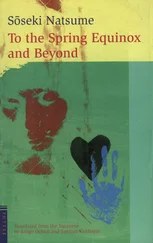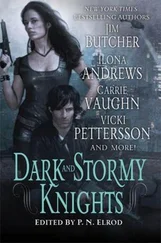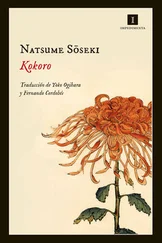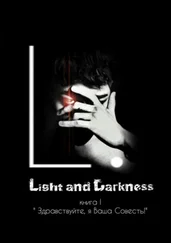“Good people, we’re about to prestidigitate an egg from this bag. Without fail, from this completely empty bag. Don’t be surprised, the magic is already here, inside my robe.”
He declaimed these words with a cockiness that seemed an extravagance beyond the means of someone of this tribe. Then, clenching one hand into a fist in front of his chest, he flung it at the bag, opening his fingers with a flourish.
“As you can see, I’ve thrown the egg into the bag,” he said, as if to put one over on the crowd. But it wasn’t a deceit: when he thrust his hand into the bag, the egg was waiting there. Gripping it between his thumb and first finger, he held it up for the spectators to see and placed it on the ground.
Tsuda inclined his head slightly, his face a blend of disdain and admiration. All of a sudden he became aware of something poking at his hip from behind. Startled, he spun around almost reflexively and discovered his uncle’s son grinning up at him like a mischievous rascal. His cap with insignia attached, his short pants, and the knapsack on his back were all the evidence Tsuda needed to know whence the boy had come.
“Back from school?”
His nephew grunted an affirmation that was neither “yes” nor even “yeah.”
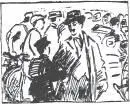 “HOW’S YOUR father?”
“HOW’S YOUR father?”
“Dunno—”
“Same as usual?”
“I guess — I dunno.”
Tsuda had no memory of his own psychology at around the age of ten and was a little surprised by this response. He smiled uncomfortably and, aware of his own ignorance, said nothing. The child for his part was intent on the magician. The latter, whose outfit appeared to have been stitched together in a single night, was just proclaiming at the top of his lungs, “Watch carefully folks as we conjure up another.”
Pulling the bag through his fist as if to wring it out, he mimed deftly once again throwing something into it and proceeded to produce magnificently a second egg from the bottom. As if this weren’t enough, he turned the bag inside out and displayed, apparently without embarrassment, the filthy striped lining inside. Even so, a third egg was effortlessly manifested with the same gestures. Handling it gingerly as though it were a valuable object, he placed it carefully on the ground alongside the others.
“Folks, I can show you as many of these as I please. But that wouldn’t be much fun, so let’s see what we can do about a live chicken.”
Tsuda turned around to his uncle’s child.
“Let’s go, Makoto. Uncle Tsuda’s on his way to your place.”
To Makoto, a live chicken was more important than Tsuda.
“You go — I want to watch.”
“He’s lying — you won’t see any live chicken if you watch all day.”
“How come? He did all those eggs, didn’t he?”
“Eggs aren’t chickens. He says that to trick people into staying around.”
“What for?”
Tsuda didn’t know the answer himself. Impatient now, he turned to leave, but Makoto took hold of his kimono sleeve.
“Uncle. Buy me something.”
Tsuda, who customarily escaped with a promise of “next time” whenever the boy pestered him and invariably forgot his promise on the next visit, replied in the usual manner.
“I will—”
“A car!”
“A car’s too large!”
“A small one — seven yen, fifty sen.”
Seven yen, fifty was most certainly too large for Tsuda. Without replying, he began to walk away.
“You promised last time and the time before — you’re a worse liar than that egg man.”
“He can do eggs, but there’s no way he can do a live chicken.”
“How do you know?”
“I just do — he can’t produce a chicken.”
“And Uncle Tsuda can’t even buy a car.”
“Hmm — maybe not. I’ll buy you something else.”
“Kid-leather shoes, then.”
Surprised, Tsuda walked a few feet in silence. Lowering his gaze, he looked at Makoto’s feet. There was nothing so shameful about his shoes, but they were a curious color somehow, neither brown nor black exactly.
“They were red until Father dyed them.”
Tsuda laughed aloud. It amused him that Fujii had dyed his son’s red shoes black. His impulse was to construe comically his uncle’s solution in his straitened circumstances to having provided his son with red shoes in ignorance of school regulations. He stared at the outcome of this extreme measure with an uncomfortable expression on his face.
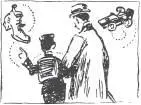 “MAKOTO, THOSE are swell shoes. Really!”
“MAKOTO, THOSE are swell shoes. Really!”
“But nobody wears this color.”
“The color doesn’t matter; who else has shoes his own father has dyed for him? You should be grateful and take good care of them.”
“But the fellows all make fun of me — they call them shaggy dog fur.”
Uncle Fujii and the fur of a shaggy dog — connecting the words resulted in a new amusement. But this joke was accompanied by a certain poignancy.
“It’s not doggy fur; take your uncle’s word for that. They’re fine, they’re not shaggy dog, they’re outstanding—”
Tsuda faltered, groping for a word to pair with “outstanding.” Makoto wasn’t one to leave this hanging.
“Outstanding what?”
“Well, outstanding — footwear.”
If his wallet permitted it, Tsuda would like to have bought Makoto the leather lace-ups he wanted. He felt this would serve as partial repayment of his obligation to Uncle Fujii for his solicitude. He essayed a mental tally of the money in his billfold. But at this time he hadn’t the leeway to make an accommodation of this size. It would be different, he thought, if a money order should arrive from Kyoto, but to tighten the vice that held him before he knew for certain whether it would arrive at all would be a demonstration of generosity he couldn’t imagine anyone expected of him under the circumstances.
“Makoto. If you want leather shoes so badly, ask Auntie Nobu to buy them for you when you’re at our house. I’m low on cash right now, so I’m hoping you’ll give me a break on what I spend on you this time.”
Tsuda strolled along the broad street leading Makoto by the hand, as if to cajole him, and again, as if to console him. The street led directly to the end of the trolley line, and the ceaseless traffic of shoes and clogs as pedestrians tramped to and from the station had transformed it over the past four or five years into a burgeoning high street. On display in the show windows here and there was a gorgeous array of merchandise that could not be categorically ridiculed as edge-of-town items. Makoto dashed back and forth across the street, standing in front of a Korean candy store one minute and returning to this side the next to pause beneath the eaves of a goldfish shop. Each time he sprinted away there was a clinking of the marbles in his pocket.
“I won all these at school today.”
Thrusting one hand inside his pocket, he showed Tsuda a palm full of marbles. When the pale blue and purple spheres spilled as though cascading from his hand and scattered into the center of the road, he chased after them frantically. Looking over his shoulder, he petitioned Tsuda’s help with a shout.
In the end Tsuda was dragged into a toy store by this dizzying child of his uncle’s and required to buy him an air gun for one yen, fifty sen.
“You can shoot sparrows, but you mustn’t aim at people.”
“I couldn’t shoot a sparrow with a cheap air gun like this.”
Читать дальше
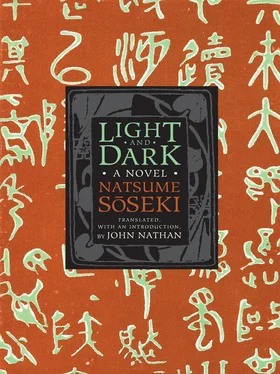
 “HOW’S YOUR father?”
“HOW’S YOUR father?” “MAKOTO, THOSE are swell shoes. Really!”
“MAKOTO, THOSE are swell shoes. Really!”
